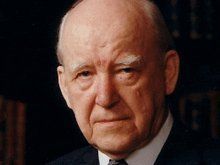I have been in my present church seventeen years. At a recent event, it was announced that I had probably preached for the equivalent of six weeks non-stop.
My reaction was: ‘Is it so little? What have I been doing with my time?’ However, another was heard to say: ‘What difference has it made?’
That is surely the pertinent question.
Response
Many, like myself, preach to the best of our God-given ability each week. We seek to do so in conscious dependence on him, expressed in much sincere prayer. We do not see nothing at all. Sinners are saved; Christians are sanctified; churches are changed for the better. Yet, if we preach as those who ‘speak the very words of God’ (1 Peter 4:11), why do we see so little fruit, comparatively?
In his History of the Reformation Merle d’Aubigne distinguished between the ‘Reformation according to the princes’ and the ‘Reformation according to the people’. The former included Henry VIII breaking with the Pope, the dissolution of the monasteries, the further reformation under Edward VI, and the Settlement and Act of Uniformity of ElizabethI.

The ‘Reformation according to the people’ was characterised by the way people learnt from the Bible as it became available in English; by their discovery of the true gospel over against the errors of Rome; and by their response to that gospel. It was also marked by the way God raised up the Puritan preachers and saved many souls.
Blessing
In the middle of the last century we experienced something of a reformation in Britain. Suddenly, taking their lead from Martyn Lloyd-Jones, men were speaking of the Puritans with approval rather than derision.
Their books were being reprinted and their lives studied. Coupled with this, their doctrine was again being preached, as the Bible was expounded.
Many more books, too, have been written to explain and apply these truths.
This movement was a blessing from God. It has become fashionable in some quarters to play down what happened, and among the younger generation there is increasing ignorance of those times.

Yet in many parts of the world, the demand for Reformed literature and preachers is insatiable. There, the work of Lloyd-Jones and those associated with him, and of their successors, is appreciated — often more so than in the UK.
Expectations
However, expectations were raised in those days that have sadly remained unfulfilled. We have not seen God moving in a great revival or awakening. People have not flocked into our churches in their thousands.
Our society has not been transformed by the Word of God, as it was in the sixteenth and seventeenth centuries.
Already, sales of solid literature are falling away. Sadly, churches where the doctrines of grace were eagerly received are in some cases returning to Arminian, that is, man-centred, thinking and practice in worship and evangelism.
God’s justice and law, conviction of sin, and mortification of sin, are less popular doctrines ‘in the pew’ than they were.

Implications
Why is this? I believe it is because what we experienced fifty years ago was neither a ‘Reformation according to the princes’ nor ‘according to the people’. We had a ‘Reformation according to the preachers’.
Only a minority of those who heard such preaching grasped its implications for personal and church life. In many cases, there was approval of the preachers but no practice of what they preached.
Many were like those who sat under Ezekiel’s ministry (33:29-32). Speaking to the prophet the Lord says: ‘You are to them as a very lovely song of one who has a pleasant voice … for they hear your words but they do not do them’.
They attended the preaching of the Word regularly; they encouraged others to do so; they spoke approving words of the prophet, and his message, and the Lord.
But their hearts were elsewhere, and they did not obey the Word of the Lord. So it has been sadly too often in Reformed churches in the last half-century.
Input and output
As a consequence, we are now faced with a generation who do not always see the relevance of the great truths presented to them, because they do not witness lives transformed by them.

We tell them that Arminian and Charismatic teaching will not produce holiness in their lives as Reformed teaching does, but they are sceptical of this assertion.
They see the spiritual shallowness of many non-Reformed believers; but they also see the complacent worldliness, joylessness and lovelessness of many in their own Reformed church. Neither bear the visible fruit of the Spirit, which is ‘love, joy, peace, long-suffering, kindness, goodness, faithfulness, gentleness, self-control’ (Galatians 5:22-24).
We have had much input of truth, but not so much output in life. ‘Now that you know these things, blessed are you if you do them’, said the Lord.
Are we willing to be doers, or content to be hearers only? Only when we are both will we again experience a ‘Reformation according to the people’.







